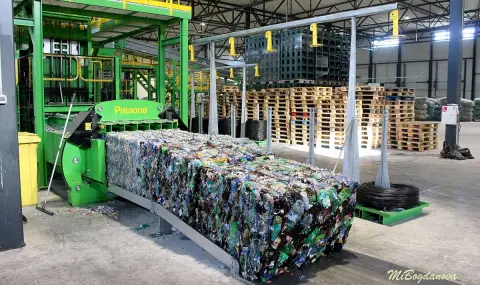The Ministry of Ecology and Natural Resources will allocate 200 billion tenge ($448.2 million) to finance the construction and modernization of processing plants of solid waste, Deputy Minister of Ecology and Natural Resources Jomart Aliyev said during an international conference in a hybrid format on April 18, focused on the problems and prospects of the recycling industry in Kazakhstan, the press service of the Association of Recyclers of Secondary Raw Materials in the country reported.< /p>
94 projects have already been selected, 37 of which are new plants.
Waste sorting and burdening local processing plants with low-quality raw materials are a major problem for high-quality waste treatment in Kazakhstan.
Last year the country achieved a 24% share in the sorting and processing of solid household waste. According to the concept of transition to a green economy, the share of recycling should reach 40% by 2030.
Aliev emphasized the ministry's commitment to increasing the share of waste recycling and obtaining the largest possible amount of useful fractions. Through satellite imagery, 5,000 spontaneously formed landfills were identified in Kazakhstan in 2023, and 80% were successfully liquidated by the end of the year.
He added that the new plants will process waste paper, glass, plastic, metals and electrical appliances.
Of the 100,000 tons of plastic generated in Kazakhstan's landfills, only about 3,500 tons are recycled. The chairman of the association, Batirbek Aubakirov, noted that the main challenge for specialized companies is the need for more raw materials for solid household waste processing.
He said Kazakhstani landfills find it more profitable to transport waste to neighboring countries for processing instead of using local processing plants.
According to Aubakirov, the problems include lack of stable sources of raw materials, unequal trading conditions with third countries and dumping of raw materials and finished products caused by different customs rates and exchange rate fluctuations.
“As a result, these factors reduce the competitiveness of Kazakh processors, loss of market share and underutilization of production capacity” he stressed.
